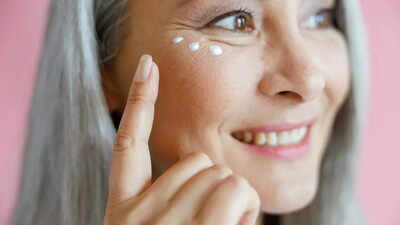ARTICLE AD BOX

In the ever-growing hunt for the fountain of youth, taurine has suddenly taken center stage. From biohacking forums to longevity labs, this naturally occurring amino acid is being hailed as a potential game-changer in the science of aging.
Found in the human body and in certain foods, taurine supplements have shown promising effects in lab animals, slowing signs of aging and even extending lifespan. But does this mean popping taurine pills will keep humans younger for longer? A major new study just published in Science is complicating the picture.
Taurine and aging: Hope vs. Hype
Taurine levels decline with age—or at least, that’s what some earlier studies suggested. These studies sparked excitement about taurine supplements as a possible anti-aging therapy.
However, most of this research was cross-sectional, meaning it looked at different age groups at a single point in time. This method often yields conflicting results, with some papers suggesting taurine levels drop with age, while others show stability or even increases.To dig deeper, researchers from the U.S. National Institute on Aging (NIA) and other institutions published a new study on June 5, 2025, in Science that combines both cross-sectional and longitudinal data—where the same individuals are followed over time.
The results challenge the foundational assumption: taurine levels don't seem to drop as we age.

The big reveal: Taurine doesn't always decline
"The main takeaway is that a decline in taurine is not a universal feature of aging," said Dr. Joseph Baur, a professor of physiology at the University of Pennsylvania Perelman School of Medicine, who was not involved in the study, in a statement to Live Science.The study tracked over 740 participants from the Baltimore Longitudinal Study of Aging, ranging from 26 to 100 years old.
It also included people aged 20 to 85 from the Balearic Islands Study in Spain, 160 people aged 20 to 68 in the Predictive Medicine Research cohort in Atlanta, and even rhesus macaques and lab mice at varying life stages.In most cases, taurine levels either increased or remained steady over time. Maria Emilia Fernandez, a postdoctoral fellow at the NIA and co-author of the study, explained during a June 3 news conference, “The differences in taurine levels seen between individuals generally is far greater than the degree of change seen across adulthood.”
Low taurine, she concluded, is “unlikely to serve as a good biomarker of aging.
”Only two subgroups in the study showed no increase in taurine levels: male mice in one part of the experiment, and men from the Predictive Medicine Research cohort. Scientists aren’t sure why.

Researchers also looked for correlations between taurine levels and health markers like muscle strength—commonly associated with aging. But the findings were “inconsistent within and across cohorts,” said Fernandez, casting doubt on taurine’s role in driving age-related decline.
What past studies showed
In 2023, a study co-authored by Vijay Yadav of Rutgers New Jersey Medical School found that middle-aged mice given taurine showed better sugar metabolism and less DNA damage. The new study didn’t replicate or examine those effects, leaving parts of the aging puzzle unresolved.Adding to the complexity, taurine levels vary wildly based on health status. In obese individuals, taurine drops—until it surges again in cases of severe obesity.
In cancer patients, taurine increases in leukemia but drops in breast cancer, according to Fernandez.As for what taurine does in a healthy body: it’s critical for forming bile salts, aids in fat digestion, supports mitochondrial protein production, and boosts antioxidant supply.
No, taurine isn’t a miracle biomarker

Rafael de Cabo, chief of the NIA’s Translational Gerontology Branch and co-author of the study, was clear during the news conference: “The short answer is no — it's not a reliable biomarker of anything yet.
I think that we need to be digging into the basic mechanisms … before it can be used reliably as a marker.”Dr. Luigi Ferrucci, a co-author of the new study and scientific director at the NIA, summed it up best: “There is a discrepancy between different studies, and this discrepancy needs to be analyzed more in depth. They may reveal some important mechanisms with aging that could be … a target for intervention.”So while taurine remains an intriguing lead in the quest to slow aging, science still has a long road ahead before it becomes a reliable treatment—or a staple in your supplement stack.



.png)
.png)
.png)
















 3 hours ago
5
3 hours ago
5









 English (US) ·
English (US) ·